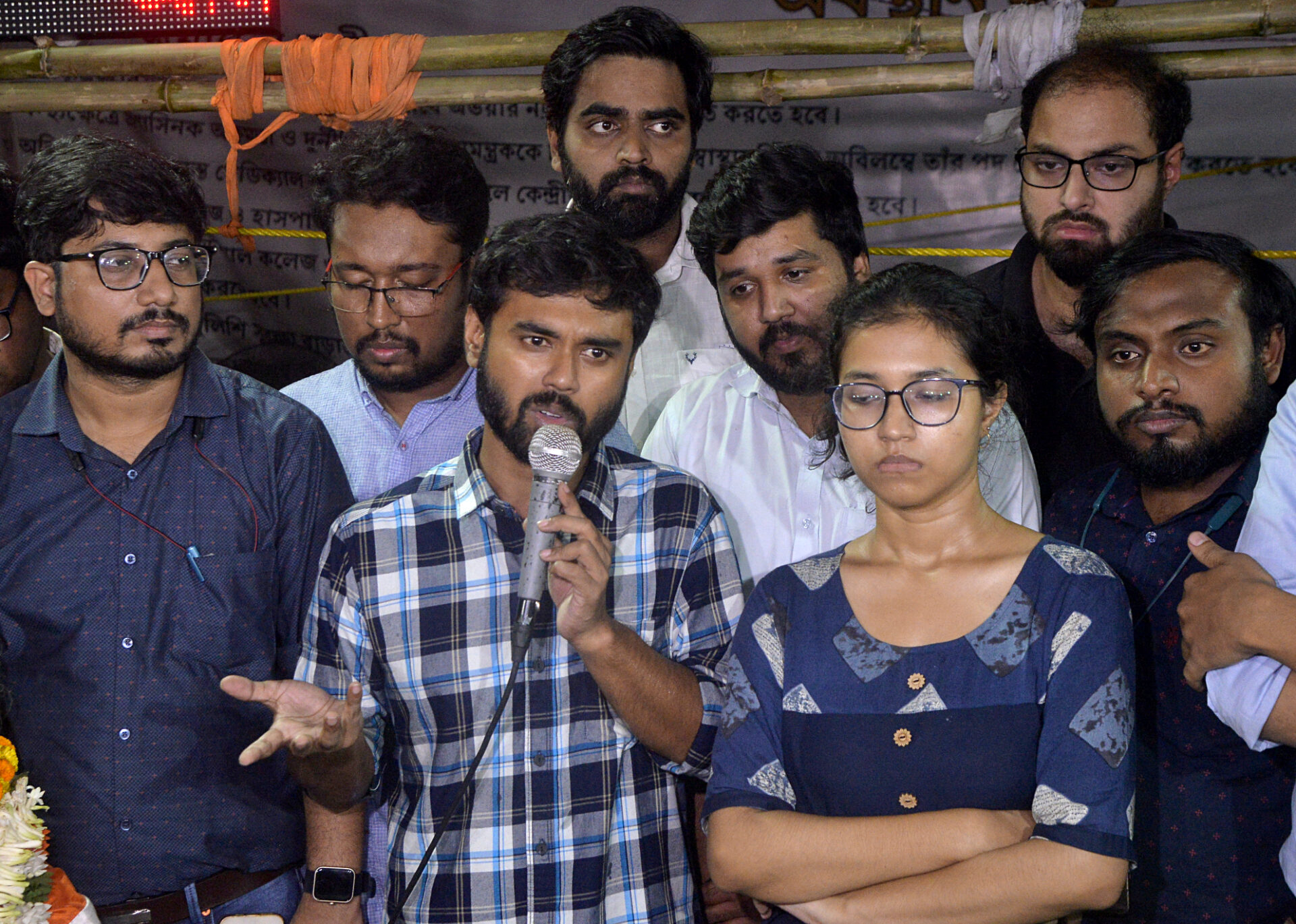Mamata Banerjee’s meeting with junior doctors highlighted tensions and her unpredictable approach to corruption issues.
Kolkata: Monday’s meeting between West Bengal Chief Minister Mamata Banerjee and the junior doctors, who had been agitating for more than 70 days after the brutal rape and murder of their colleague at R.G. Kar Medical College and Hospital, paved the way for the withdrawal of a 17-day hunger-strike. It also brought out in public the shrewdness of the veteran politician. From the start, it was a David versus Goliath contest when the group of junior doctors squared off against one of the country’s smartest politicians. On one side were young men and women whose colleagues had been on hunger strike for 17 days. On the other side was the veteran Chief Minister confronting perhaps the biggest crisis of her tenure in full public view.
After all, the government’s sudden decision to live stream the meeting meant that for the first time since assuming office, the Chief Minister had to, in full public view, handle a situation which was not totally within her control, nor was it carefully planned. Observers say that what transpired also exposed the way in which Banerjee runs her government.
The protest against the trainee doctor’s rape and murder at the R.G. Kar Medical College and Hospital had become a battle of nerves. It had become a battle between an astute politician and a few thousand junior doctors supported by a large section of the society in Bengal. Thirteen years into power, Banerjee was facing a crisis that is largely apolitical, despite her and her party’s efforts to make it political.
This was the sixth meeting between the administration and the doctors in the course of the agitation. Earlier, a meeting with the Chief Minister had to be aborted since the doctors wanted the proceedings to be live streamed and Banerjee and her officials did not agree. They argued that the live streaming could not be allowed “since the matter was sub judice before the Supreme Court.”
But on Monday, Banerjee had a sudden, inexplicable change of heart. “This is vintage Mamata. Totally unpredictable. She has always played the politics of convenience. Monday was an example. If the matter was sub judice one month ago, it is sub judice till now. But trust Mamata to take opposite stands without batting an eyelid,” said Ranjit Roy, a veteran journalist who has seen Banerjee from the time of her student politics days.
“It is well-known that in the Trinamool Congress, there is only one post which is held by Mamata, and everybody else is just a lamp-post. Similarly, the meeting made it clear that it was Mamata and Mamata alone who called the shots, logic and law be damned,” said veteran political analyst Subhomoy Maitra. Biswanath Chakraborty, another prominent analyst said, “Every stratagem that Mamata Banerjee has used in her 13-year governance was on full display. Half-truths, full-untruths, arbitrariness, and even hectoring the young doctors to browbeat them was on public display. But credit must be given to the young doctors for sticking to their guns and making their points in a calm and business-like manner.”
The doctors stood their ground at the meeting, and sparks flew between the two sides. “Would you like to have some tea?” asked the Chief Minister. “No, ma’am. Our friends have been on hunger strike for the past 17 days. We don’t want tea,” a woman doctor responded sharply yet politely. This set the tone for the next two hours.
At one point, Aniket Mahato, a third-year resident doctor of R.G. Kar and prominent face of the movement, who had just been released from the hospital after fasting-related complications, confronted Banerjee directly.
“Ma’am, should we take the side of a rapist or a criminal?” he asked. While Banerjee, a seasoned politician, has often been successful in controlling the narrative, she has struggled to manage the doctors’ protests. One of the most-talked about exchanges took place around the demand for the removal of Narayan Swaroop Nigam, the Principal Secretary of Health, who has been accused of corruption by the junior doctors who had brought documents in support of their allegation. As soon as the doctors alleged that Nigam was responsible for the corruption and mess in the medical sector, Banerjee stepped in, backing Nigam, and dismissing the doctors’ demand for his removal.
“An accused cannot be labelled as such until it is proven. I’m speaking from a legal standpoint,” she said.
Banerjee, who is known for openly rebuking senior officials in live streamed meetings, was perhaps not prepared for the sharp rebuttal from protesting doctor Manisha Ghosh at this point.
“If there are allegations, we call someone an accused. If the allegations are proven, we call them guilty. That’s both grammatically and legally correct,” Ghosh retorted. Banerjee’s reprimand of medical college principals for suspending students accused of “threat culture” sparked a heated exchange. She also accused the principals of playing politics and expressed dissatisfaction with their recent efforts to clean up the environment in medical colleges. “I don’t want anyone’s career to suffer. Principals should inform us when they receive allegations. We will do the investigation,” she insisted.
However, as per the National Medical Commission, medical colleges are authorised to take strict action against those found guilty of ragging or abetting ragging.
When she specifically criticised Manas Banerjee, the newly appointed principal of R.G. Kar Medical College, for suspending 47 students without informing the government, she was met with fierce opposition from junior doctors. Manas Banerjee’s predecessor Sandip Ghosh is now in CBI custody and often thought of as having been close to Banerjee.

